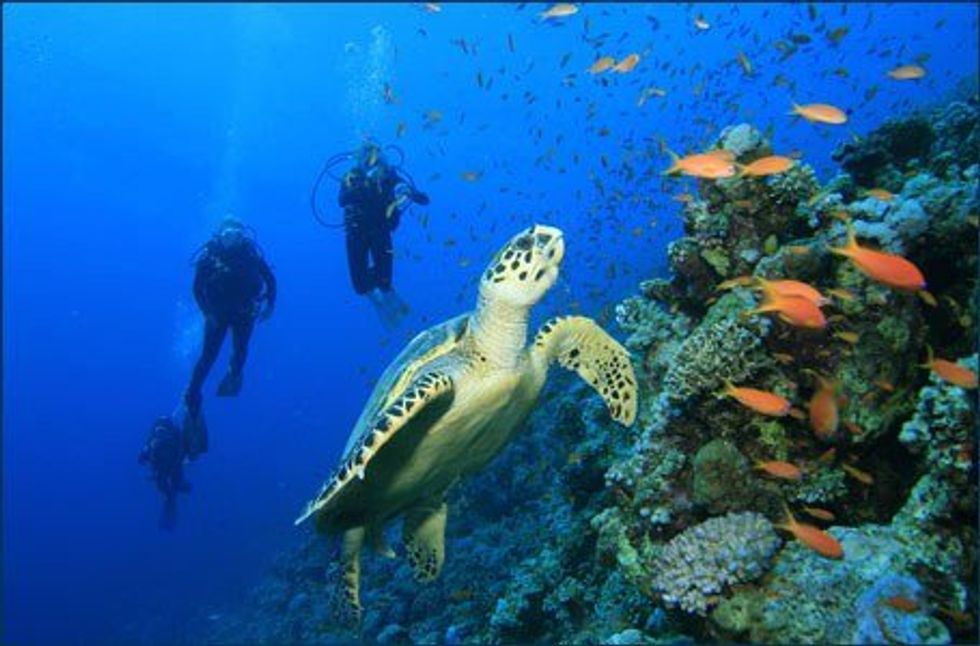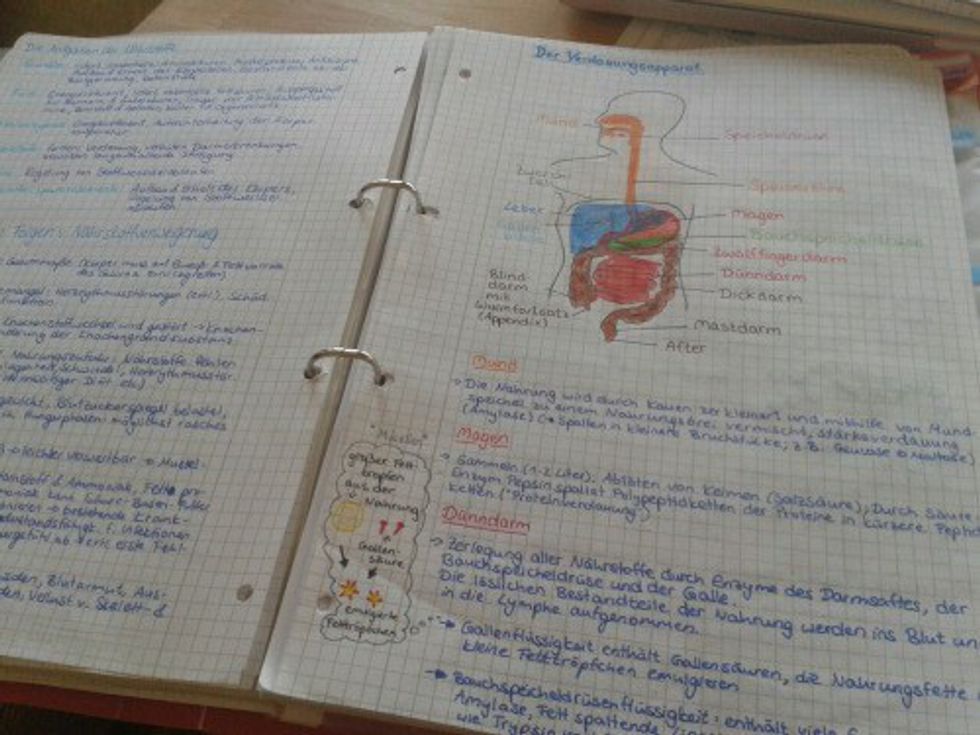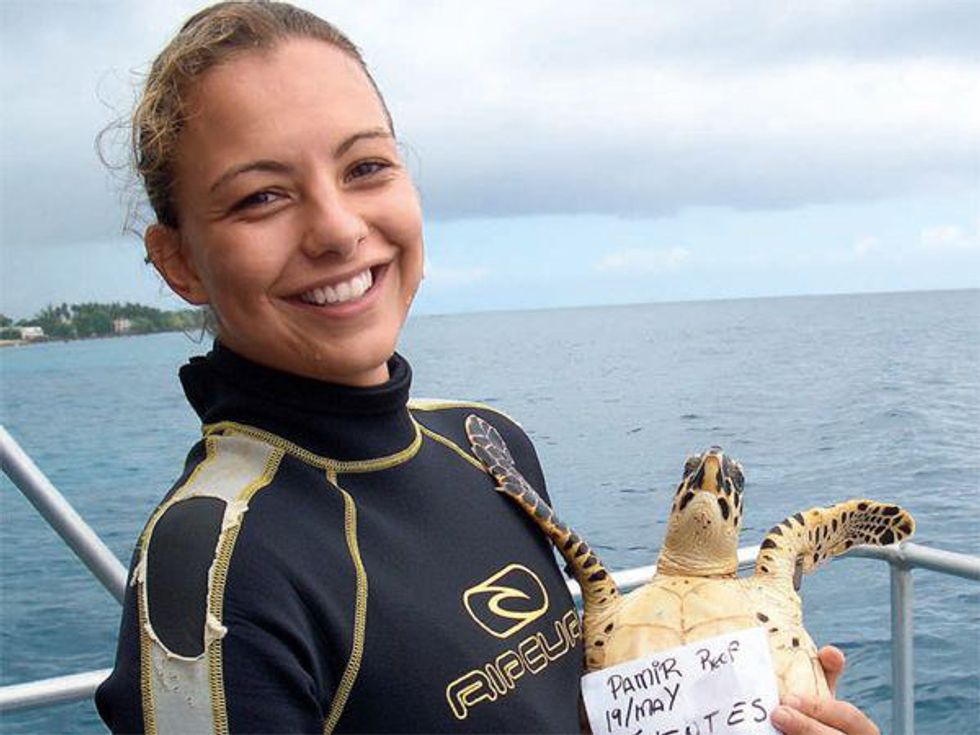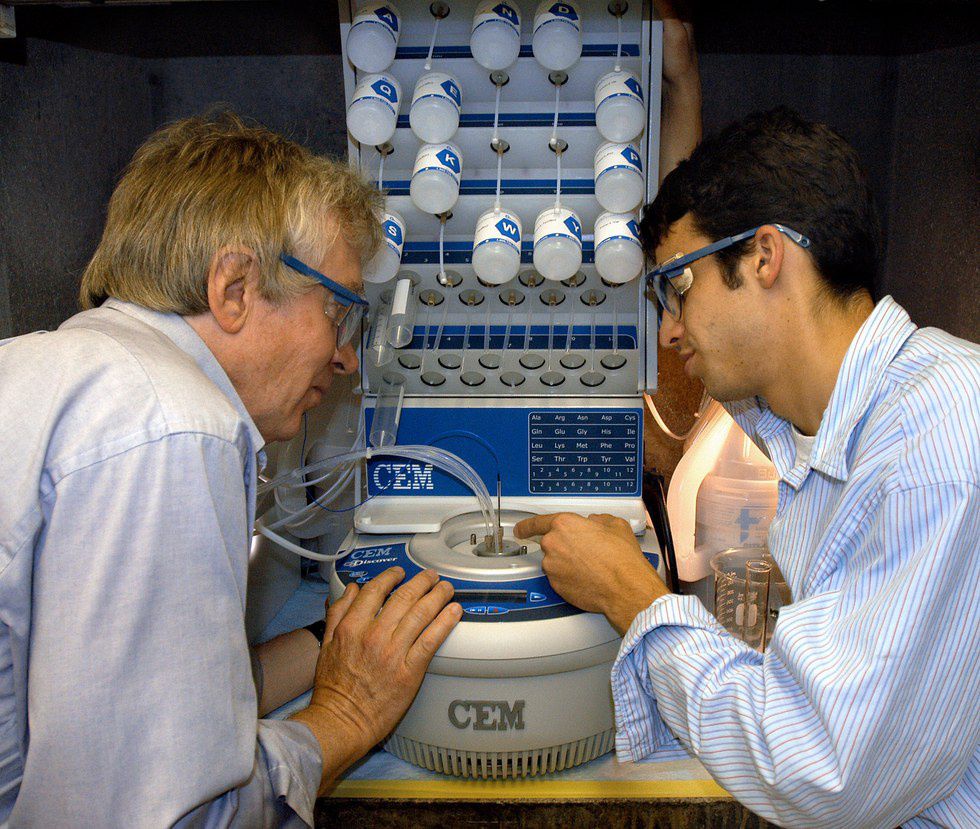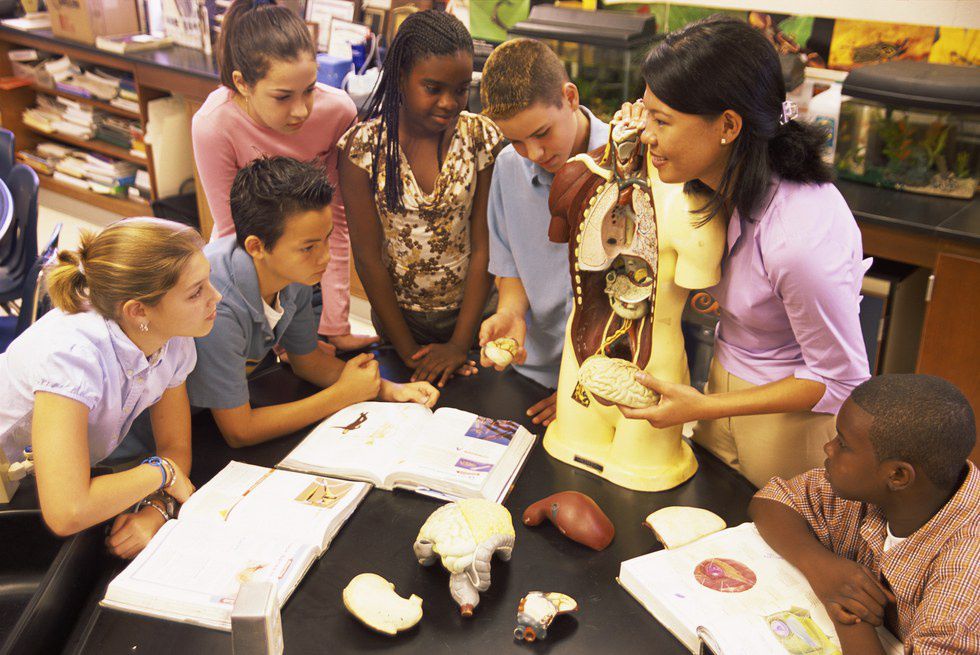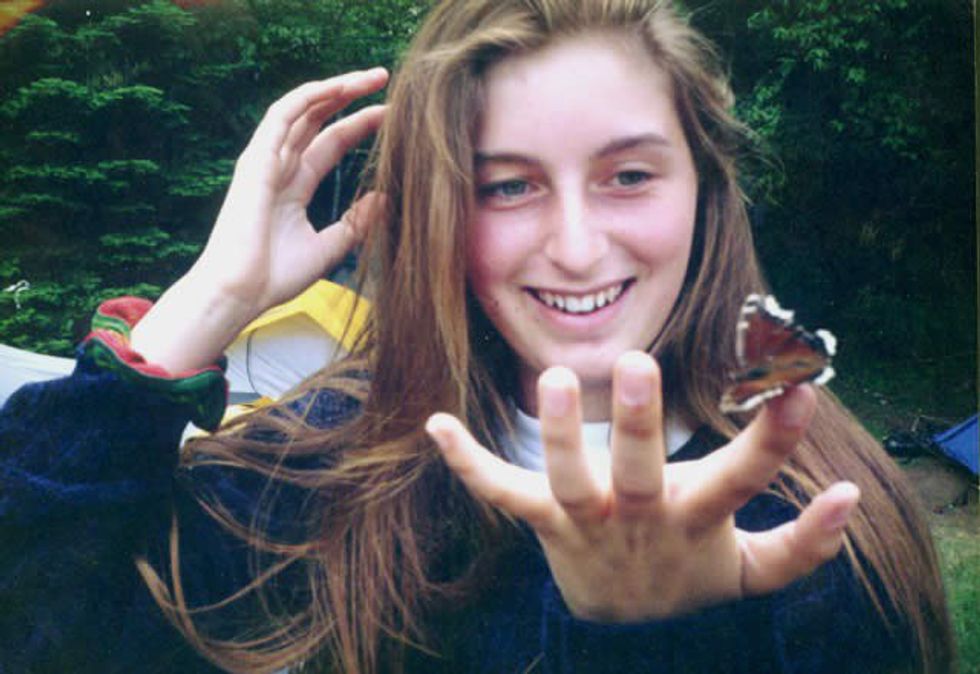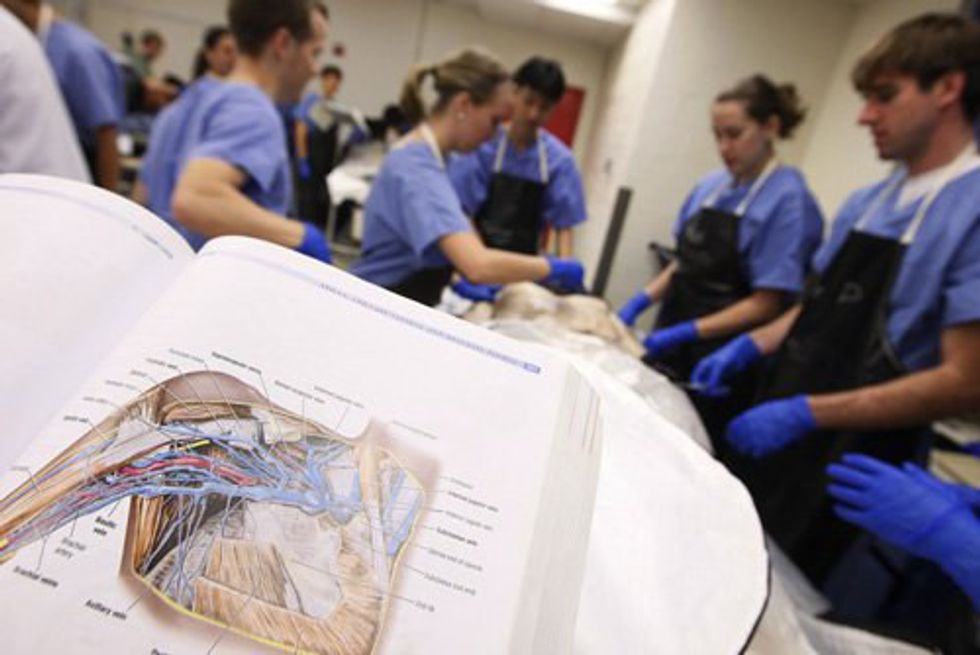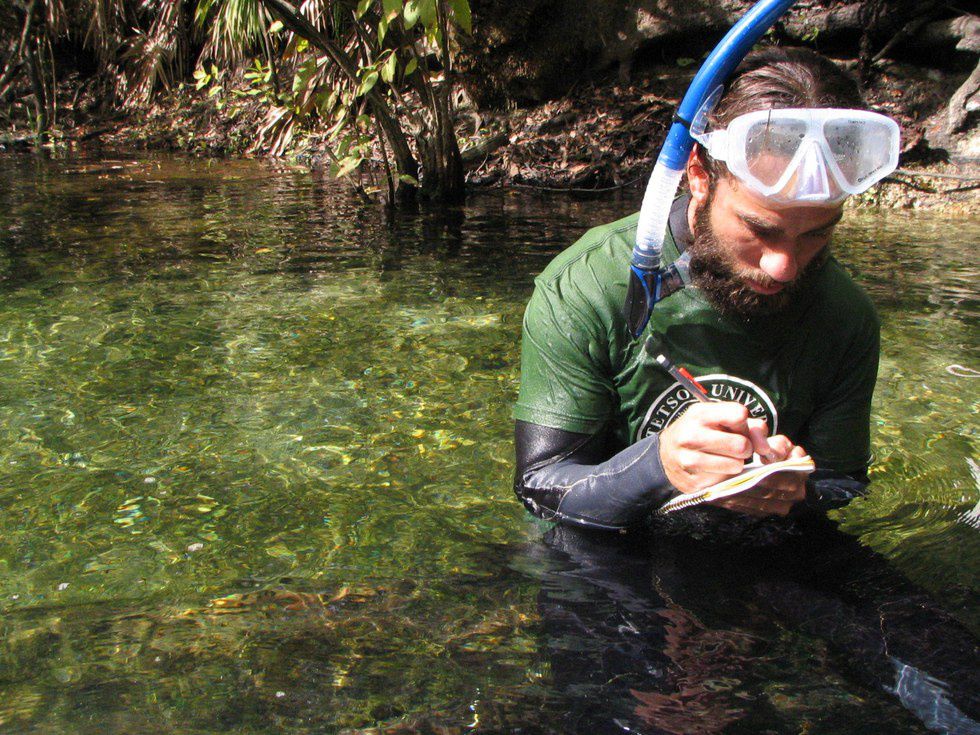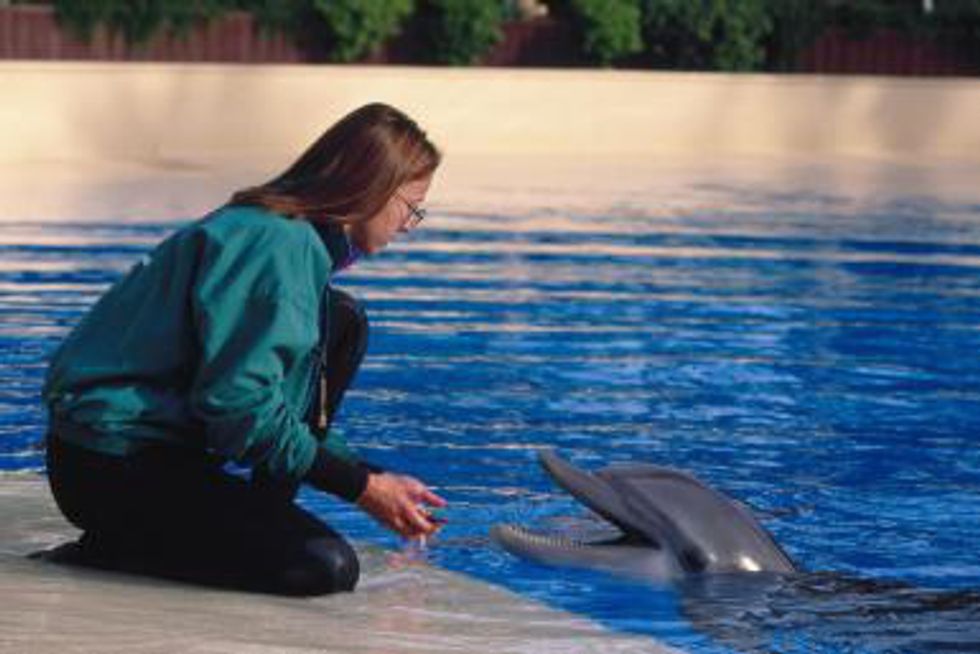Biology, in short, is the study of life. The goal of this major is to have a grasp on the diversity and functions of life forms from micro to macro organisms. If you are not sure if Biology is a good fit for you, check out this list to get a better feel for what it's like and consider how this major might fit into your future! Or, if you've already declared this as your field, you can share this with your family and friends so they can get a feel of the reasons and merits of your choice!
1. Being a biology major is challenging.
I often times spend many nights in the library in a given week. My fellow biology majors and I are typically the stressed students you will see in the library at 3 a.m. writing lab reports, studying piles of worn flashcards, drawing horrifically detailed notes for anatomy, or crying over a general chemistry or OChem textbook. Many biology courses demand a student memorize large chunks of information and it takes a lot of studying to make sure our brains actually encode what we are expected to know. If being a biology major was easy for me, I wouldn’t find it rewarding and I would not be pursuing a degree in this field. However, it is a challenge and I find it to be a very rich and adventurous one that is worth any perceived pains, turmoil, or lack of sleep. If it didn’t challenge me, it wouldn’t change me. At the end of the day, biology is the area I’d love be an expert in!
2. Biology majors are prepared for a wide variety of careers and skills.
This major allows it’s students to pursue incredibly diverse types of jobs. Are you getting a BS in Biology? You can apply for med schools, law school, or MAT programs. You can end up selling insurance, being a science writer, working in pharmaceuticals, being a teacher, a wildlife biologist, a lab tech, professor, a dental assistant, a PA, a veterinarian, and countless other jobs. It’s a wide open door into not just one path, but thousands. Who wouldn’t want to maximize their postgrad college options?
3. Being a biologist positively aids the development your character.
Those who practice science in classrooms and labs become familiar with how to be ethical in their research and experiments. Honesty is vital to being a scientist, and integrity is a must when it comes to reporting data. From doing group work and writing scientific reports, your mind is trained to give credit where it is due, take initiative, practice humility, constructively respond to criticism, and analyze objectively.
4. Biologists learn to also see failures as beginnings, not endings.
If a scientist gave up every time they failed or their research fell through, there would be not advancements in society. However since we learn that failure is an expected part of the scientific process, we learn to draw knowledge from our failures and to keep pushing forward to find new insights.
5. Understanding biology helps me live a healthier life and improve the lives of others.
There is no secret that knowledge is power. Learning about the human body’s complex systems enables me to make better decisions for my health and the health of others. It also motivates me to want to make these healthier choices, because I understand the gravity of diet, exercise, social, and drinking habits on life span and life satisfaction. I want to have a career that involves education in some way so that I may inspire future generations to take care of themselves and the planet. So whether I end up being an education staff member at the aquarium or teaching in a secondary classroom, I know I will get to make a difference in the world by teaching knowledge based on scientific facts.
6. The classes that I take are my favorite, and I love learning the material I am expected to know.
This is an obvious point. If I wasn't in love with what I get to learn about, I obviously wouldn't be doing science. I went through all of my previous grades from kindergarten to the present to be able to take the classes I want to at my University, and these courses are Biology related. My heart beats faster when I think about the beauty of DNA's double helix structure. I read books about the systems of the brain and body for fun. My passion is learning about echinoderms, sponges, cartilaginous fishes and coral reefs. Taking courses such as genetics, ecology, anatomy, marine biology, oceanography, environmental conservation, animal behavior, microbiology, and mammalogy is like a religion to me. I attend these lectures with a pep in my step, as if I'm going to receive knowledge about the divine. They help me be intrinsically motivated as a learner, which means I do these courses simply for the joy of learning. Even though I have battled some serious doubts about changing my major when I first started college, in the end, I know that being a biology major is exactly what I've always wanted to do and I'm sticking to it!
7. Nature is a major source of inspiration to me, intellectually, creatively and spiritually.
When I am walking through a forest or on a beach shore, for example, I am constantly asking myself questions, as any scientist would do. I want to understand the physical and chemical properties taking place. I ache to know about the species of animals and plants inhabiting the area. How do the biological organisms, those we can see and those we can’t, interacting with one another? How are human activities impacting it? How did this area evolve to be the way it is in the present? The more time I spend in nature, the questions I have and the more I want to understand science. Thus, I am motivated by nature to pursue a degree that gives me answers to these questions that frequently circulate and captivate my brain.
8. Biology majors get to "gross out" their friends and family.
It's no secret that many labs involve in-depth dissections, ranging from shark dissections to authentic human cadavers. These provide some interesting stories to scare friends and family. For example, one of my friends owns a pig lung in a baby food jar from a dissection. You never know what souvenirs or stories you'll gain on one given day in lecture or lab!
9. Biology is hands on.
I'm a learner that enjoys immersive and tactile experiences. Exploring on site field labs or visiting a local river for collection is always a fun and refreshing experience. It's different then only doing lecture courses and enables your textbooks to come to life. Scientists also have to do a lot of dirty work for research experiments such as swabbing door handles for microbiology lab to hiking through the woods to identify bird calls for Ornithology.
10. Biology is always all around you; you are biology.
There is never a moment or a time when biology is not relative to who you are. You yourself are biology! Understanding biology means better knowing yourself and all of the many phenomena you experience on a daily basis. Science gives an account of how and why things happen in the physical world, and knowing these things disproves many myths you might have been told by non-scientists.
11. Biology is an endless adventure!
There are constantly new developments being made in this field. A person will never know all there is to know about science or biology. What could be more exciting than always having new things to learn about for the rest of your life? What could be more challenging? Science is about being investigative, thinking critically, always asking questions, and learning for life. I don't know what's more interesting than that. Whether my future takes me underneath the waves observing corals or tagging sharks, or whether I end up in the public school system teaching biology to high schoolers, this degree is one I will always be putting to good use and that I'm incredibly grateful to have the opportunity to earn.
Happy exploring!



